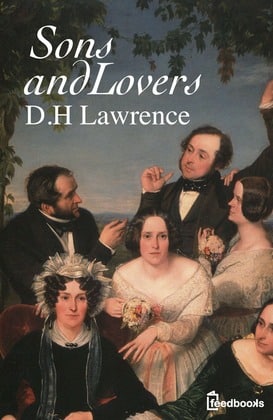D.H. Lawrence is one of the great writers who may be described as ‘life-changers’ and like all life-changers, he is highly controversial. Diana Neil gives a better estimate of him when she writes, “But when all is said, there is greatness in him. He is something of an authentic visionary and the future may be in a better position to interpret his dreams.”
Sons and Lovers have layers of meaning and hence, various angles of perception are needed to grasp them. The novel cries out for psychoanalytic interpretation. It needs to be examined as an example of what Freud termed the ‘Oedipus Complex’. This points to the sexual desire of a son for the mother and conflict with the father.
Lawrence by introducing the Oedipus complex into English Literature not only enlarged its horizon but also opened up a new vista in the field of fiction. He gave a new psychological depth to the manipulation of such a complicated theme. Though Lawrence did not read Freud while writing Sons and Lovers, the novel is a beautiful illustration of Freud’s theory of the Oedipus Complex. ‘Sons and Lovers’ is considered the first Freudian novel in English.
In the present novel, we find Mrs. Morel as the intellectually superior but callous female whose sexual responses become increasingly more frigid. Opposite her is the sensuous Mr. Morel; close to the earth in occupation and spirit, open in his responses to life, fond of singing, dancing, drinking, and a kind man who was slowly crushed to non-entity by his wife’s ideals. Thus, becomes an outsider in his own house. Mrs. Morel turns to her sons for love and gains husband substitutes. As such, here one part of Oedipus’ situation is fulfilled.
Mrs. Morel first grasps William, the elder one. William had been Mrs. Morel’s favourite son and she had been lavishing all her love and affection upon him. She had been cherishing high ambitions about his future. Though William loved Lily but was unable to give himself to her as he was tied to his mother. Mrs. Morel felt a little disappointed when William fell in love with Lily Western. William, even when he had gone to London he kept writing loving letters to her mother. Now, the love between William and Mrs. Morel was not a case of ordinary love between a mother and her son. This relationship is certainly an example of the Oedipus complex.
After the death of William, Mrs. Morel turns to the younger one, Paul. The relationship between Paul and his mother runs through the whole novel. It has various stages and various degrees of both intensity and stress. Paul suffers from pneumonia and when he recovers the mother captures his spirit. There is a striking emotional correspondence between them. His heart contracted with the pain of love for her. Mr. Morel tries to interrupt but Mrs. Morel gets angry. Paul too hates his father and prays for his death. H.M. Daleski writes that the clash between Paul and Mr. Morel is of course a striking example of the Oedipus complex.
Paul’s love relationship with his mother takes a new turn with the coming of Miriam, a young girl in his life. The mother is deeply hurt by this. She throws her arms around Paul’s neck, hides her face on his shoulders and cries in a whispering voice, “I cannot bear…She would leave me not a bit of room.” The situation becomes quite emotional and intense with a long fervent kiss.
In fact, all through the second half of the novel Paul’s relation with his mother assume the character of a husband substitute. He sticks to her by instinct as if he was her man. There are various incidents and situations in the novel where they both were like lovers. Consequently, Paul fails to establish a well-adjusted relationship both with Miriam and Clara. He has trouble handling and being comfortable with them. Paul had developed a sexual relationship with Clara, but he could not discuss the subject matter with his mother.
We find another feature of the Oedipus complex in this novel when Mrs. Morel fell ill. Paul showed extraordinary devotion and concern for her mother. During her illness, he had no peace of mind. He often addressed his mother as “Pigeon” and “my Little”, as if she was her lover. The phrase ‘Oedipus Complex’ aptly describes Paul’s attitude towards his mother.
Lawrence was an explorer of human relationships and in this novel, he has studied sex-relationship from different angles. He became successful in delineating the character of Paul psychologically. The novel traces the growth of the protagonist’s consciousness and the development of emotional relationships from a subtle psychological angle. Paul cannot give himself to Miriam because he knew that while his mother is alive, he will not get freedom. He has sexual union with Clara and is filled with guilt. He finds he is carried away by her violent passion.
This relation brings a marked change in his attitude towards his mother. He realizes his mother is destroying him and he wants liberation. His act of giving an overdose of medicine in her milk is another aspect of Oedipus’s complex. Graham Hugh is right when he says, “The whole situation presents the Freudian Oedipus Complex in almost classical completeness.”

